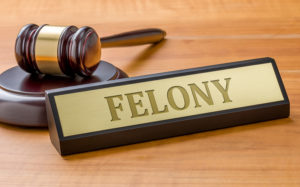
In March 1981, a man attempting to impress Jodie Foster fired on then-President Ronald Reagan in Washington DC.
Over ten years later, Congress passed the Brady Handgun Violence Prevention Act requiring a background check for all handguns purchased via federally licensed dealers. Brady, along with his spouse, Sarah, lobbied hard and coordinated their efforts with the Center to Prevent Handgun Violence.
Following the Brady bill going into effect, the Federal Bureau of Investigation processed over 258 million background checks for gun purchases and applications.
The debate continues.
In November 2016, Nevada voters approved a measure, Question 1, which would expand gun background checks. The following month, Nevada’s Attorney General announced the AG’s office would not enforce the law. The AG’s decision prompted the FBI to likewise decline to conduct the background checks consistent with the act.
In response, advocates of Nevada’s voter-approved Question 1 measure filed a comprehensive public records request to both state and federal departments. What it is they hope to find is not clear.
“We’re trying to get a grip on what happened, including all the agencies which took part,” said Jennifer Crowe, the spokesperson for the initiative’s proponents.
Crowe refused to say if the group was looking for a specific piece of information. Nevadans for Background Checks retained Greenberg Traurig, a law firm, to help with the request seeking data from Adam Laxalt, Nevada’s Attorney General and strong opponent to Question 1.
Monica Moazez, a spokesperson for Laxalt’s office, said the length of time to provide the information is unknown. The office has two employees who address public records requests, and the process could take months.
Moazez refused to common on the request.
“Our official policy keeps us from commenting on public records requests,” Montez said.
Proponents of Question 1 have called for Laxalt to work with agencies to resolve the issue.
Claim: Future cop killings in states which closed the background check loophole dropped.
Fact: This approach to studying the causes of gun violence has been debunked. Politifact checked a similar claim made by activists in Virginia and found analysis didn’t support the idea of more gun control equates to less violence. Instead, states which require background checks often are more likely to support additional efforts that contribute to the well-being of residents. Correlation is different than causation.
The bottom line of studies shows that background checks on private transfers don’t help. Economists, criminologists, and researchers have not found that the Brady background checks reduced violent crime.
Question 1 proponents believe that Nevada’s law-abiding gun owners will be criminalized.
For instance, if an individual loaned his shotgun to his fiance, but would be required to go to a federally licensed firearms dealer, pay for a background check and repeat the process when the gun is returned. The law provides a self-defense exception for temporary transfers if the victim is facing imminent death.
The Oregon killer, the WDBJ killer, the Charleston church killer, the DC Navy Yard killer and the Aurora movie theater killer had something in common. Each of them passed a background check.